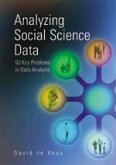The emergent field of CSS is growing in scientific importance and public interest. There is no doubt that the field of social science needs to keep up with a rapidly changing society; the ubiquity of digital media in all aspects of life, work, play, and leisure is requiring new perspectives and theories. Driving forces include technological advancements in computer systems, the rise of machine learning, and the ubiq-uity of artificial intelligence. Digital media are being adopted on a large scale globally, leading to the creation and collection of vast amounts of structured and unstructured data. This holds the promise of a new type of open science, where data in the social sciences is a public good instead of serving commercial interests.
These developments affect both the objects of social-science research as well as its methods. We are witnessing a paradigm shift from traditional survey research to large-scale computational methods, not least because of the mereavailability of large amount of digital trace data. This shift has concrete implications such as usage of disparate kinds of data (e.g., unstructured data), application of new types of methods (e.g., machine learning), exposition to a wide range of threats to data quality and valida-tion, and finally different inferential paradigms.
The goal of this textbook is to respond to this paradigm shift with an exposition of computational methods required to conduct social research in the digital age. Five basic points characterize the in-tended scope and focus of the textbook: Selection of methods, Data quality, Statistical learning & validation, Artificial intelligence and Balance of statistical foundations and programming.
These developments affect both the objects of social-science research as well as its methods. We are witnessing a paradigm shift from traditional survey research to large-scale computational methods, not least because of the mereavailability of large amount of digital trace data. This shift has concrete implications such as usage of disparate kinds of data (e.g., unstructured data), application of new types of methods (e.g., machine learning), exposition to a wide range of threats to data quality and valida-tion, and finally different inferential paradigms.
The goal of this textbook is to respond to this paradigm shift with an exposition of computational methods required to conduct social research in the digital age. Five basic points characterize the in-tended scope and focus of the textbook: Selection of methods, Data quality, Statistical learning & validation, Artificial intelligence and Balance of statistical foundations and programming.








